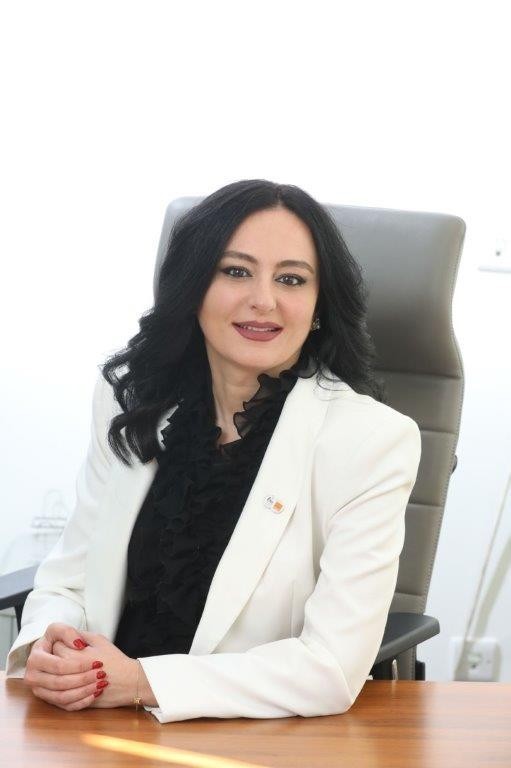Jordanian social media has taken hold of a statistic from a 2021
International Labor Organization (ILO) report contending there is a 60 percent
chance that your manager is a woman. Circulating posts have praised this
finding, but the context in“Only 2.7 percent of women work in non-education sectors as junior and senior managers.” which it was presented was missing, almost
exclusively, from any posts.
اضافة اعلان
While many
successful women challenge the stereotypical image Arab society assigns to
them, there remains a striking gender gap in managerial positions in the
Jordanian workforce.
The 60 percent
statistic mostly reflects respondents from Jordan’s education sector,
especially schools and kindergartens.
Omitting female
school and kindergarten principles, “only 2.7 percent of women work in
non-education sectors as junior and senior managers,” said
Frida Khan, ILO’s
senior gender equality specialist and coordinator of the Jordan Decent Work
Country Program.
Companies’ mindsets about working mothers places women as a secondary option for promotion.
Economically,
women in Jordan have a notably low rate of participation. According to the ILO,
the Kingdom’s female labor force participation rate is below 15 percent, while
men represent about 60 percent. This contrasts with Jordan’s impressive
educational outcomes, seeing as the Kingdom has the highest female literacy
rate in the
Middle East and North Africa, at nearly 98 percent.
Despite the record
high education rates amongst women, many still perceive them as less competent.
Such gender imbalances in labor and leadership roles impact both women and
society as women lack access to the types of careers they can excel in, and
society is left with a lack of important expertise.
Women in
leadership roles interviewed by
Jordan News agreed that this gap could be
explained due to people’s negative perceptions of people in these roles. The
ILO noted, in a report, that women have a harder time finding employment than
men. This problem is most prevalent in
North Africa and Arab states, as women’s
unemployment rates exceed 20 percent.
This gender-based
discrimination also plays a role in women receiving fewer job offers and lower
starting salaries than men.
 An undated photo of Rana Dababneh. (Photo: Handout from Rana Dababneh)
An undated photo of Rana Dababneh. (Photo: Handout from Rana Dababneh)
Deputy chief of
Public Relations and Corporate Social Responsibility and corporate
communication officer at Orange, Rana Dababneh, said: “I think a woman should
work hard to improve her skills and knowledge and have a clear career goal of
moving up in management.”
Dababneh, a mother
of two, has been a widow for 14 years but is proud that she has been able to
balance her career progression while also raising her kids.
“I believe that
nothing prevents women from reaching management positions. If they’re independent
spirits, then nothing is impossible,” she stressed.
“Women should
distinguish themselves by their achievements, not by their gender,” Dababneh
advised, highlighting the importance of ensuring excellence while maintaining a
competitive edge.
“Big corporations
targeting issues of gender imbalance can empower women in the labor market,”
added Dababneh, assuring that — based on tangible results and performances
—women in management secure more diverse perspectives and maximize efficiency
and productivity.
 An undated photo of Dana Faddah. (Photo: Handout from Dana Faddah)
An undated photo of Dana Faddah. (Photo: Handout from Dana Faddah)
Dana Faddah,
project delivery manager at
Arab Bank, captain of Jordan’s national basketball
team, and “a mother of two amazing smart fighters,” stated that “companies’
mindsets about working mothers places women as a secondary option for
promotion.”
“Most executive
and managerial positions are held by men who tend to promote other men similar
to themselves,” she added.
Big corporations,
in particular, are a challenging environment for women, she said, adding that
“women are always treated differently than their male peers.”
Faddah also
touched on the fact that societal pressure and expectations are another barrier
working women have to deal with, as many working women must deal with their
families and spouses as well.
Only 2.7 percent of women work in non-education sectors as junior and senior managers.
“I have decided to
adjust my mindset and leave my comfort zone. This choice has guided me through
my work, athletic career, and in raising my two daughters.” She encouraged
other women to trust their own voices and have confidence in their ability to
handle the challenges and consequences of their decisions, despite not being
appreciated or noticed.
Change will come
with time, she assured. “Believe in yourself and be what you are built to be.”
The changes
required to aid women in reaching managerial positions were highlighted by
Reem Aslan, manager of the Decent Work for Women program at the ILO. She stated that
having a safe work environment free from violence and harassment is essential,
and nurturing a comfortable setting for employees with familial
responsibilities by providing flexible work arrangements and access to
childcare facilities is necessary.
Applying gender
quotas in Jordan could also make a difference in the representation of women in
managerial positions, she continued, as well as ensures fair remuneration with
sufficient social protection measures that encourage women to remain in jobs.
The “Women in
Leadership” program conducted by the ILO aims to advocate and raise awareness
of the significance of gender diversity at the legislative level, said Aslan.
The program encourages the
private sector to adopt gender equality and diversity policies. It is currently
pushing for amendments to legislation, including creating structured corporate
governance instructions for listed shareholding companies and introducing a
quota system ensuring that a board of directors comprises at least 30 percent
of both genders, said Aslan.
Read more Features
Jordan News



